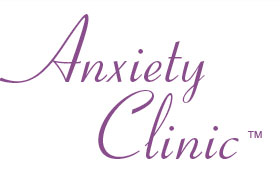Edinburgh Postnatal Depression Scale - EPDS
Get Your Edinburgh Postnatal Depression Scale Score Now:
The Edinburgh postnatal depression scale is an effective screening tool. Although the Edinburgh postnatal depression scale should not be used to override clinical diagnosis is can give a reasonably accurate self-assessment. The EPDS is made up of ten simple questions, to which the answers must be given with regard to the previous seven days.
It is very important to be honest with your answers when using the Edinburgh postnatal depression scale.
How To Use The Edinburgh Postnatal Depression Scale

Remember that you are answering each question with regard to how you have felt over the previous seven days - not just today.
Work through the ten questions in order, noting down the score (0, +1, +2 or +3) on a piece of paper for each answer (as marked on the test).
When you have answered all the questions, add up the scores to give yourself a grand total.
We will discuss what your score means and the options you have once the test has been completed.
Start the Edinburgh postnatal depression scale test now...
The Edinburgh Postnatal Depression Scale Questions

In the past seven days:
1. I have been able to laugh and see the funny side of things.
- As much as I always could (Score: 0)
- Not quite so much now (Score: +1)
- Definitely not so much now (Score: +2)
- Not at all (Score: +3)
2. I have looked forward with enjoyment to things.
- As much as I ever did (Score: 0)
- Rather less than I used to (Score: +1)
- Definitely less than I used to (Score: +2)
- Hardly at all (Score: +3)
3. I have blamed myself unnecessarily when things went wrong.
- Yes, most of the time (Score: +3)
- Yes, some of the time (Score: +2)
- Not very often (Score: +1)
- No, never (Score: 0)
4. I have been anxious or worried for no good reason.
- No, not at all (Score: 0)
- Hardly ever (Score: +1)
- Yes, sometimes (Score: +2)
- Yes, very often (Score: +3)
5. I have felt scared or panicky for no good reason.
- Yes, quite a lot (Score: +3)
- Yes, sometimes (Score: +2)
- No, not much (Score: +1)
- No, not at all (Score: 0)
6. Things have been getting on top of me.
- Yes, most of the time and I haven't been able to cope at all (Score: +3)
- Yes, sometimes I haven't been coping as well as usual (Score: +2)
- No, most of the time I have coped quite well (Score: +1)
- No, I have been coping as well as ever (Score: 0)
7. I have been so unhappy that I have had difficulty sleeping.
- Yes, most of the time (Score: +3)
- Yes, sometimes (Score: +2)
- Not very often (Score: +1)
- No, not at all (Score: 0)
8. I have felt sad or miserable.
- Yes, most of the time (Score: +3)
- Yes, quite often (Score: +2)
- Not very often (Score: +1)
- No, not at all (Score: 0)
9. I have been so unhappy that I have been crying.
- Yes, most of the time (Score: +3)
- Yes, quite often (Score: +2)
- Only occasionally (Score: +1)
- No, never (Score: 0)
10. The thought of harming myself has occurred to me.
- Yes, quite often (Score: +3)
- Sometimes (Score: +2)
- Hardly ever (Score: +1)
- Never (Score: 0)
That is the end of the questions. Add up your scores and move onto the next section to find out what your total score means...
Edinburgh Postnatal Depression Scale Results & Your Options...

The minimum score required for 'possible depression ' is 10 or more. So if you scored below 10 on the Edinburgh postnatal depression scale you almost certainly don't have postnatal depression.
If you scored 13 on the Edinburgh postnatal depression scale there is a 'reasonable likelihood' that you have postnatal depression. It would be a good idea to talk to your GP, health care worker or seek out other specialised help.
If you score 14 or more there is an ever increasing likelihood (as the score rises) that you have a more serious case of postnatal depression. A 14+ score means that you should seek professional help as a matter of urgency.
Remember that whilst suffering from postnatal depression your thoughts, emotions and performance can all be compromised. We are sure that you want the best for your baby, family and relationship but the only way to get that is to fully recover from postnatal depression.
The options available to your are medication, cognitive behavioural therapy or a combination of the two. It is important to understand each of your options and particularly that medication alone wont fix postnatal depression. You can find more detailed information describing all of your options on our postnatal depression treatment page.
If you've done enough research and would like to talk to a specialised Consultant about what to do next, feel free to give us a call on 01782 855585. We're here from 11am to 9pm, seven days a week and our advice is free.




